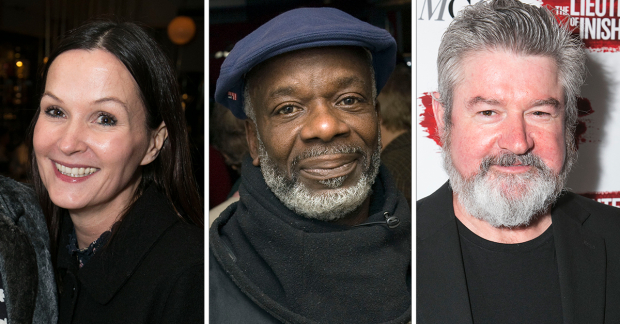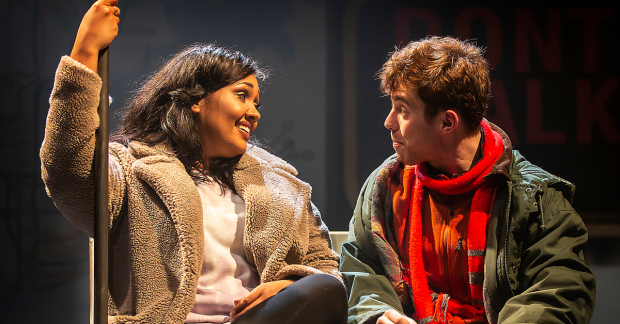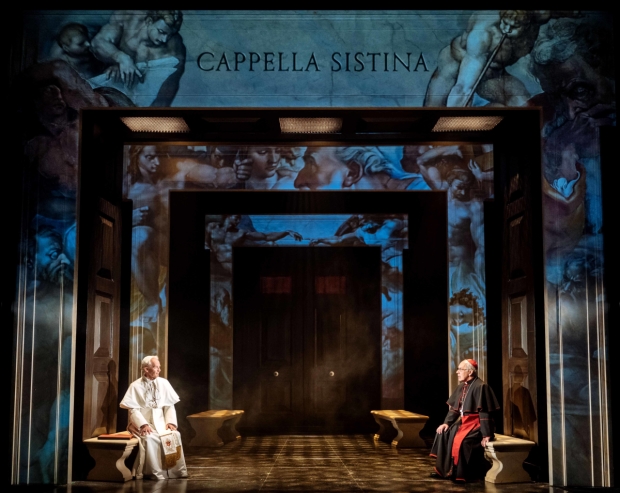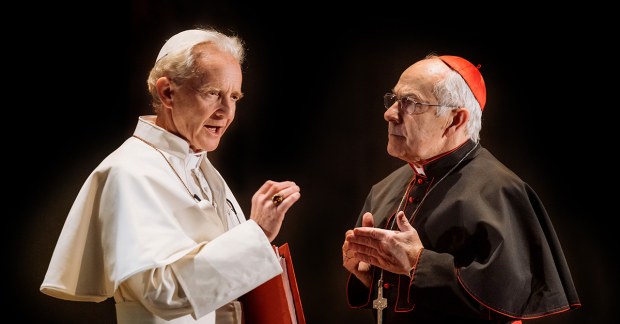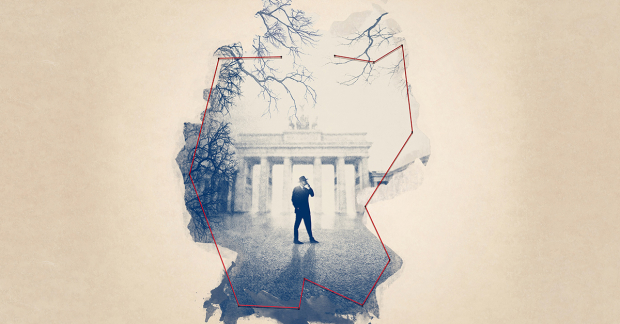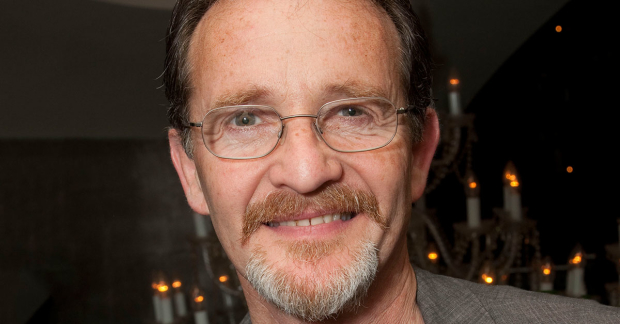Review: Alone in Berlin (Royal and Derngate)
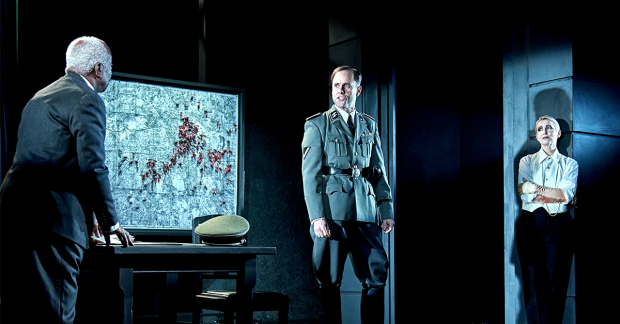
© Manuel Harlan
For a story set in Berlin during the war, there's an argument to be made for trying to catch the idiom of the time. About the best that can be said of Alistair Beaton's adaptation of Hans Fallada's German novel is that it has a go.
Based on the true story of Otto and Elise Hampel, the narrative centres on a small but, to them, deeply significant act of subversion by this unobtrusive middle-aged couple, who take the only revolutionary action they can think of under Hitler's brutal regime: they leave postcards lying around with anti-Nazi messages written on them. It's a tiny protest against the might of the machine but it allows them to live with themselves amid the barbarity.
It's easy to see why Beaton sensed a stage opportunity in the story – there are heroes and villains, domestic intimacy and grand themes, a rich vein of dramatic potential. It should be blisteringly powerful and utterly thrilling. In the end, though, the production somehow manages to feel uncomfortably pedestrian.
The devices of director James Dacre and his team seem, on the face of it, worthy of exploration. German influences abound, from the monochromatic Dürer-like projections by Nina Dunn to the interjections of Weimar-influenced MC Jessica Walker, singing her narrations in slicked-back hair and waistcoat like an escapee from Cabaret. None of them is coherent and the resulting conglomeration of ideas ends up a bit of a mess.
Orlando Gough's Kurt Weill-inspired songs unfortunately don't help matters. They're a bit too atonal and random, while Beaton's on-the-nose lyrics border on the comical as the narrator solemnly informs us that Hitler's propaganda is "lies, lies, lies" or that the SS are bad news. This bald simplicity of message transfers into the dialogue too, so that almost nobody uses subtext or even develops as a character through the 160 long minutes of the show.
Among the performances, Julius D'Silva comes across as the most credible as an opportunist spiv, cheerfully prepared to grass up his neighbours for a few marks, but it's too little to rescue the steadfast grimness of the occasion. With twenty minutes to go, it's as if Beaton realises things are not dramatic enough, so he resorts to a gratuitous and thoroughly unpleasant torture scene that does nothing to further the plot and only reinforces the underlying sense of depression.
Jonathan Fensom's design and Charles Balfour's lighting are appropriately stark and downbeat, and Dacre's direction can do little to lift the spirits, despite the evident effort. Beyond the simplistic notions that tyranny is best avoided and individuals just have to do what they can in difficult circumstances, there's precious little nuance or subtlety. Two hours and forty minutes is a long time to be fed that lesson.




